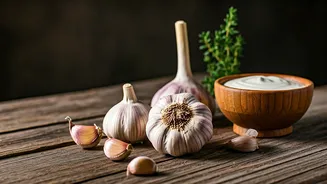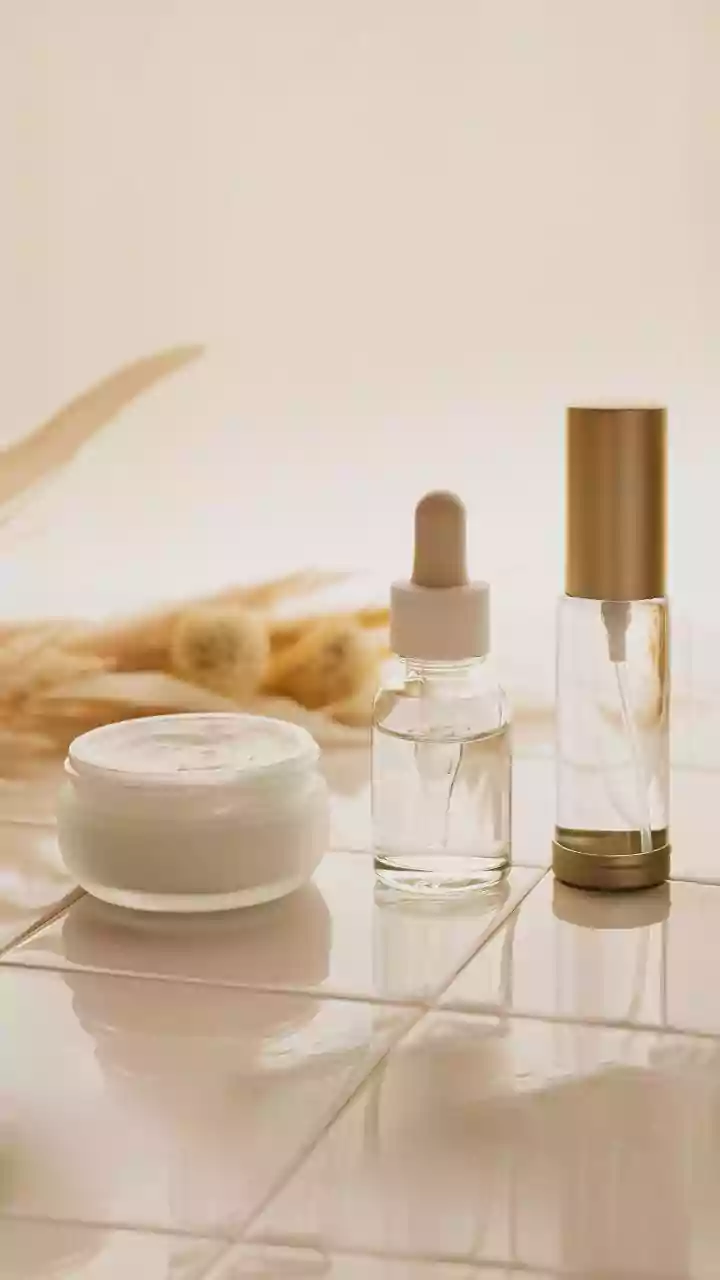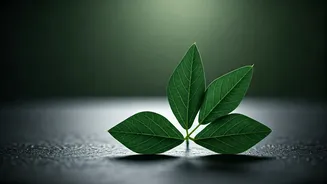Garlic's Antidandruff Action
Garlic, often celebrated in kitchens, packs a punch beyond flavor. Its potent compounds boast antifungal and antibacterial properties, crucial in battling
the root causes of dandruff. This isn't just hearsay; scientific studies have highlighted garlic's ability to inhibit the growth of Malassezia globosa, a fungus often associated with dandruff. To harness this power, one can use garlic-infused oil or create a garlic paste to apply directly to the scalp. Regular application can help reduce inflammation, itching, and flaking. Remember to be cautious as garlic can be potent; always test a small area of the skin first to ensure there's no adverse reaction. Also, its strong smell may linger, so combining it with other ingredients can help minimize this issue.
Yogurt's Soothing Effect
Yogurt, a staple in many Indian homes, is more than just a culinary delight; it's a natural remedy for scalp health. Yogurt is packed with probiotics, which help balance the scalp's microbiome, the delicate ecosystem of microorganisms. This balance is key to preventing dandruff, as an imbalance can lead to fungal overgrowth. Applying plain yogurt to the scalp can soothe irritation and reduce flaking. The lactic acid in yogurt gently exfoliates the scalp, removing dead skin cells without harsh chemicals. This mild exfoliation helps to keep the pores clear, promoting healthy hair growth. For enhanced benefits, you can blend yogurt with other ingredients from this list, creating a powerful dandruff-fighting mask. This holistic approach combines the moisturizing and probiotic benefits to create a truly effective remedy.
Coconut Oil for Scalp
Coconut oil is a versatile ingredient, praised for its moisturizing and antifungal properties, making it a valuable ally against dandruff. The oil penetrates the hair shaft easily, keeping the scalp hydrated and preventing dryness, a common contributor to flakes. Its natural antifungal compounds help combat Malassezia globosa. Regular use of coconut oil can reduce flaking and itching, promoting overall scalp health. For best results, massage the oil gently into the scalp, leaving it on for at least 30 minutes before washing your hair. This allows the oil to fully penetrate and work its magic. Coconut oil works well in combination with the other components in this list, further boosting their effectiveness.
Flaxseeds for Scalp
Flaxseeds, rich in omega-3 fatty acids, bring a unique advantage to the fight against dandruff. Omega-3s possess potent anti-inflammatory properties, reducing scalp inflammation and irritation that can worsen dandruff. Flaxseeds also contribute to healthy skin cell production, helping to repair and strengthen the scalp. You can incorporate flaxseeds into your routine in several ways. The oil derived from flaxseeds can be applied directly to the scalp, or a flaxseed gel (created by boiling flaxseeds in water) can be applied. The use of flaxseeds helps in maintaining a balanced and healthy scalp. They offer a deep-seated approach to dandruff treatment, focusing on the reduction of inflammation and promotion of cellular health.
Amla's Antioxidant Power
Amla, also known as Indian gooseberry, is a traditional remedy packed with antioxidants and vitamin C, making it a powerhouse for scalp and hair health. Amla helps combat oxidative stress, which can damage the scalp and contribute to dandruff. Its anti-inflammatory properties help soothe the scalp, reducing irritation. Applying amla oil or using amla powder mixed with water to create a paste can strengthen the hair, reduce flaking, and promote hair growth. Amla's high vitamin C content can also help boost the immune system, indirectly aiding the body in fighting off fungal infections that contribute to dandruff. This potent ingredient is an excellent complement to other treatments in this list.
Lemon's Cleansing Action
Lemon, with its high citric acid content, offers a cleansing and exfoliating action that helps control dandruff. The acidic properties help to break down dead skin cells, unclog pores, and remove excess oil. Lemon also contains antimicrobial properties that help fight against the fungal causes of dandruff. However, because of its potency, lemon should be used cautiously. Applying diluted lemon juice to the scalp can help cleanse it and reduce flaking. It's crucial to dilute the lemon juice with water to avoid irritation and potential skin sensitivity. People with sensitive scalps should be particularly careful. Lemon can also be combined with ingredients like coconut oil to counter its drying effects.





















